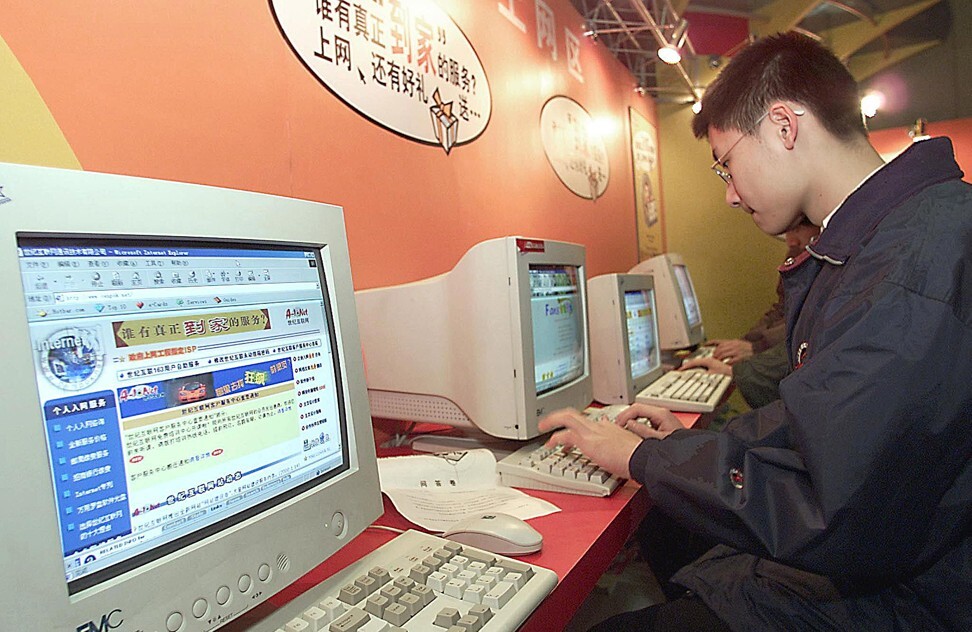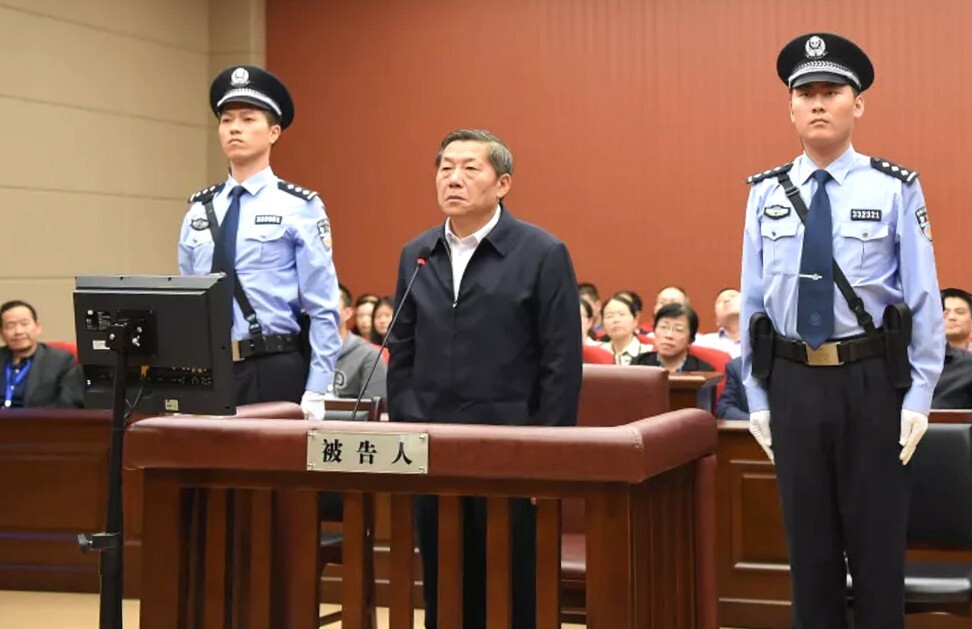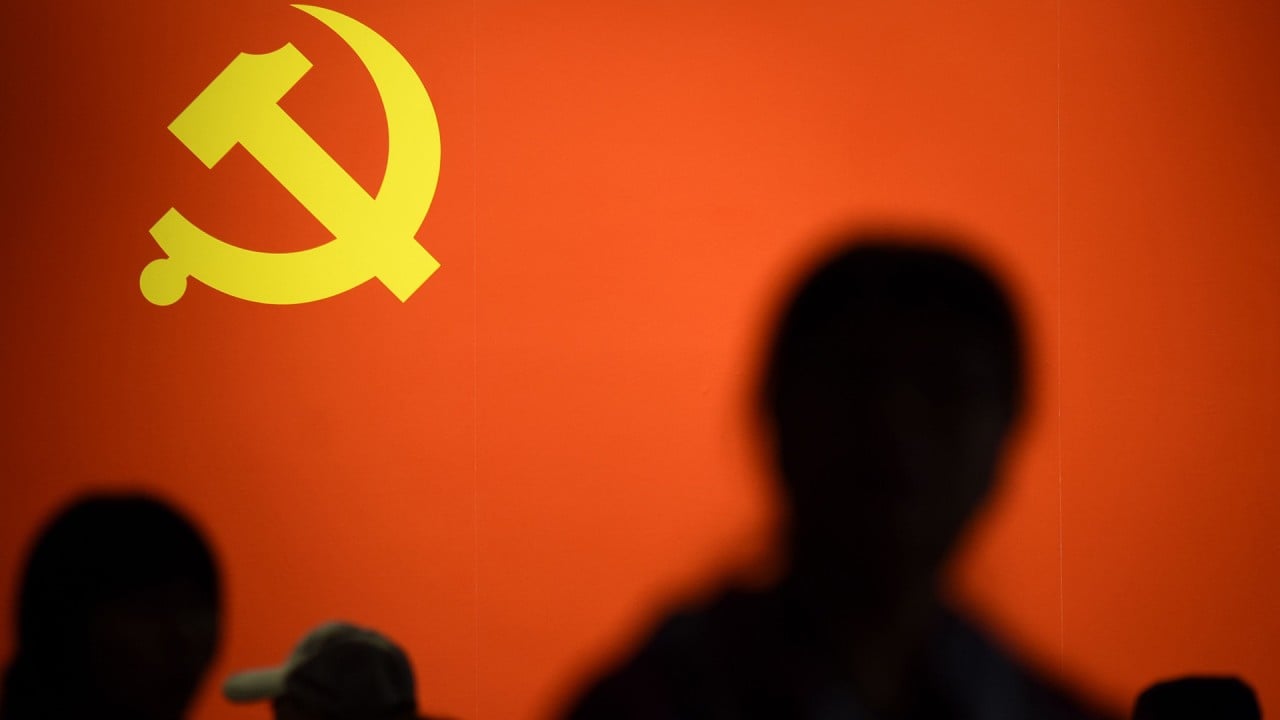
How China wants to keep controlling the internet
- A new draft of China’s updated online service regulation spells out the powers and roles of three main government bodies overseeing the internet
- The Chinese model presents an alternative to the Western model as countries search for a way to better supervise online activities
The Chinese government has made technology and innovation key priorities in its development plans for the next five years, as it strives to build a “Digital China” and overtake the US as the world’s No 1 economy. In this second part of a series looking at the politicisation of China’s internet landscape, we explain how the planned revamp of a two-decade-old internet regulation could reshape the country’s digital future.
Now Beijing is prepared to further tighten its grip.

The new version of the regulation has absorbed China’s experience in managing the internet over the years, making it more comprehensive and modern, said Wang Sixin, a law professor at the Communication University of China.
The draft also provides more clarity about the roles of different government bodies, according to Rogier Creemers, China Digital Economy Fellow at New America and postdoctoral scholar in the Law and Governance of China at Leiden University.
“The rules aren’t just about what you can and cannot do in online services,” said Creemers. “The rules are also about disciplining the government.”
The draft regulation stipulates that CAC, also known as the Office of the Central Cyberspace Affairs Commission, will oversee the planning of internet and cybersecurity management. The Ministry of Industry and Information and Technology (MIIT) will be in charge of network connection and market access. The Public Security Bureau, which controls China’s police force, will manage public order and security on the internet, as well as punish illegal online activities.
While the Chinese authorities have already been actively supervising the internet for years, analysts said the new regulation delineates responsibilities more clearly than the previous version, which was written before the CAC was established in 2011 under the State Council Information Office.
“It offers a higher-level legal basis for the Cyberspace Administration to police the internet,” Wang said.
“CAC is responsible for the overall planning and oversight. It has certain law enforcement powers that are growing, while traditionally a lot of those powers belong to MIIT and [the Public Security Bureau],” said Michael Tan, a partner at the law firm Taylor Wessing. “But it’s an ongoing process … the boundaries are still blurry.”
How the Communist Party shaped China’s internet
The transformation of CAC from a shadowy presence under the government’s chief information office into one of China’s most formidable ministries coincided with Beijing’s efforts to centralise internet management.
In 2014, the CAC was elevated to the executive arm of a newly formed leading group on cyberspace affairs under the Central Committee – the largest of the Chinese Communist Party’s elite ruling bodies. Lu Wei, the powerful man who headed the CAC until 2016, was known as China’s internet tsar.
“It’s making very clear that it’s expected of them that they work together and it’s expected of them that they share information,” Creemers said. “In a way it’s also a message to these government departments, saying, ‘If you don’t do this, there will be consequences.’”
The relatively short history of the CAC also means that its resources are often limited, especially compared with the far more established and well-funded Public Security Bureau, which has an extensive national network going down to the local level.

In recent years, the police have been turning into a more prominent presence.
The draft of the new internet regulation highlights the role of the police, said James Gong, a lawyer at Herbert Smith Freehills.
The Public Security Bureau was mentioned only twice in the original regulation, but it appears in at least 20 articles in the new version, which is about three times longer. The police’s increased prominence comes amid a surge in internet crimes in China. Cases rose more than 32 per cent from 2016 to 2017, and over 50 per cent from 2017 to 2018, according to a report published by the Supreme People’s Court – China’s highest court. The increase dovetails a comparable rise in cybercrimes around the world, including in the US.
“The fact that it emphasised the Public Security Bureau’s role is worth paying some attention to,” Gong said. “The existing version [of the regulation] is more related to telecommunications management, but the new draft gives prominence to the role of the Public Security Bureau in protecting cybersecurity and tackling cybercrimes.”
Regardless of which government body holds more power, departments often have to join forces in carrying out their duties. The CAC, for instance, works with the MIIT, the police and market regulators to clean up content on live-streaming platforms. It also collaborates with other government agencies to regulate how smartphone apps collect and use personal data.

02:33
How China censors the internet
More than just clarifying the roles of different government organs, the new regulation also spells out the responsibilities of private businesses and the consequences faced by citizens who fail to follow the rules.
For instance, the draft allows the police to detain a person for up to 15 days for any online offence considered less serious than an outright crime – a provision that was not in the old regulation. Individuals and companies will be punished for perpetuating fake traffic, comments and transactions. They also face heftier fines of up to 1 million yuan (US$153,000) for spreading rumours online.
The new regulation puts a heavier burden on service providers as they are required to raise red flags to the state for suspected violations, said You Yunting, senior partner at Shanghai Debund Law Offices.
“When it comes to any internet crime or violation of the country’s real-name [registration] system across various services, companies have the obligation to report. The new regulation has made clear that they have an obligation to facilitate government investigations,” said You.
The new draft even includes a clause stating that Chinese authorities can go after internet services both at home and abroad if it concerns “an illegal and criminal activity that endangers the security and order of the national cyberspace and infringes upon the legitimate rights and interests of Chinese citizens”, according to Matt Murphy, managing partner at the law firm MMLC Group.
“This has the potential for the Chinese authorities to regulate foreign-based services,” Murphy said, “This could be quite intrusive, if the authorities choose to enforce this provision expansively.”
For those internet service providers with operations in China but servers abroad, the new regulation, if implemented, will “increase the probability of illegality,” Murphy said. “If network services are provided to China through servers set up overseas, the competent authority may also conduct supervision,” he added.
It is very clear that the current management model of the internet – the very free-market, private sector-driven model – that’s done.
The draft regulation also requires online service providers to retain network log information for six months, up from 60 days previously.
Ma Ce, co-founder of Kinding Law, said the amendment is “at a significant scale”, reflecting regulators’ desire to clean up many areas on the internet.
“We’ve reached a key moment in history,” said John Dong, a lawyer at Joint-Win Partners. The changes that Chinese authorities are pushing for are unlikely to happen organically within the tech companies themselves, so regulators will need to take charge, said Dong.
“It is very clear that the current management model of the internet – the very free-market, private sector-driven model – that’s done,” Creemers said. “You don’t have to be a defender of authoritarian governments or dictatorships to say that we need to regulate the internet more effectively to see what they’ve led to.”
“China more correctly understood the risks emerging from the online world than Western governments did. And that’s going to mean that for many countries, China is going to be an example. And they’re going to watch it carefully to see what works and what doesn’t work.”







